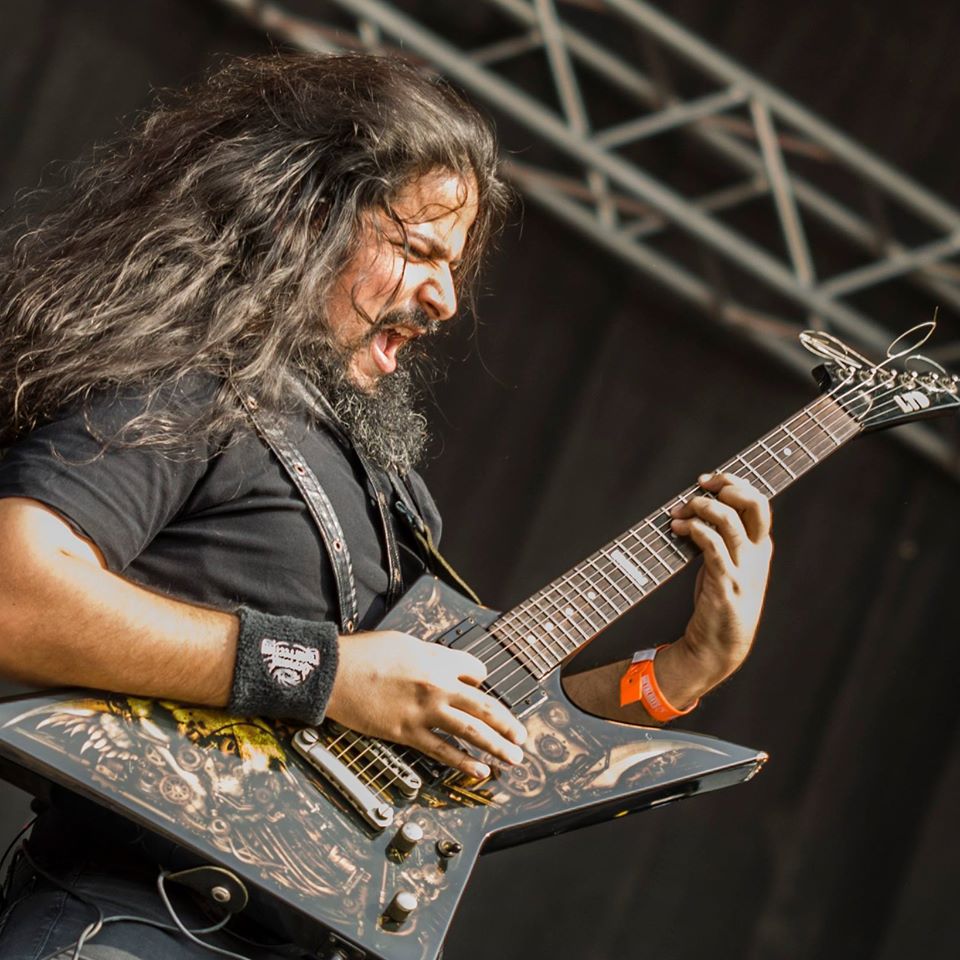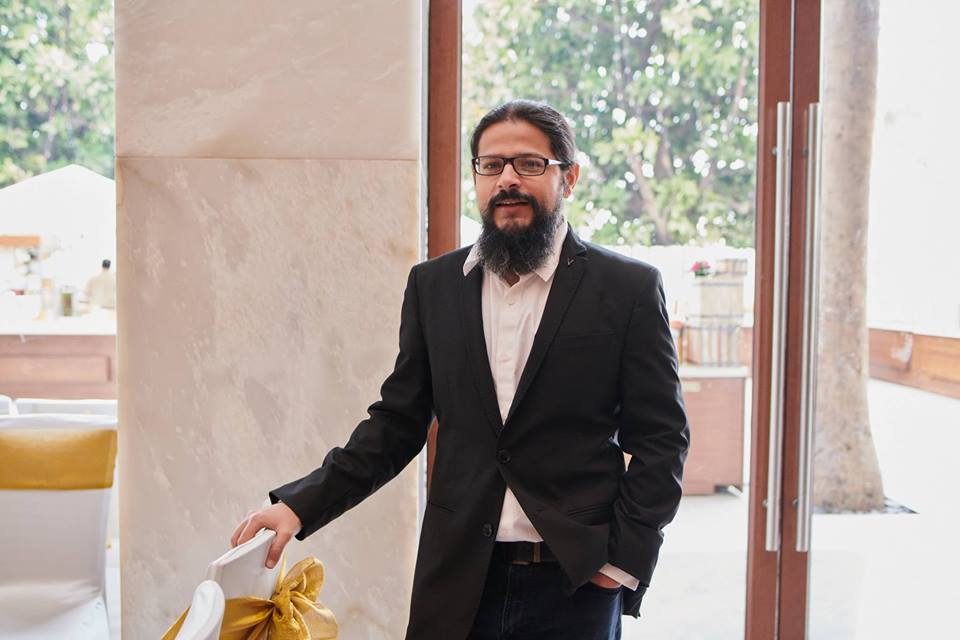
 Photo Courtesy: Sahil Makhija
Photo Courtesy: Sahil Makhija
As the frontman of Demonic Resurrection, founder of Demonstealer records and a name in the Indian metal scene, Sahil Makhija has been through it all. Since Demonic Resurrection recently completed 19 (yes, 19) years of being a band, we decided to ask about his opinions on how things have changed and how the metal scene is moving forward. His opinions have often been divisive (and they might be here too); his outspoken criticism of metal and the way the Indian independent music industry works have attracted flak from different groups of people. Those who are still trying to make it and putting effort into metal music would find his lack of hope and bitterness about certain things off-putting and maybe detrimental to their image of how the scene looks, while those with thin skin (half the people who read Facebook posts and are personally offended) would look at his words as just that; offensive. Whether you accept his ideas on how messy the scene is or find him out of touch with your personal experience does not matter; what does is that he seems to be upfront and blunt with his thoughts. One would have to give him that at the very least.
What are your opinions on streaming picking up in India with Spotify and YouTube Music launching, especially since SoundCloud and OKlisten have always been the main places to go for music in the indie scene?
It is a good move. Soundcloud has been an unpaid platform for artists and OKListen has been a point of sale for digital music. Spotify and Youtube music are paid services from which artist will receive royalties, no matter how pathetic they might be. The way I see it, it’s a step in getting music fans to value the music and start paying from it. Because it’s so cheap hopefully they will stop their torrenting and actually starting consuming music legally.
How have labels changed since you started out? Do you think they and their way of working are still relevant today?
I never had the pleasure of being signed to a label in the ‘good old days’ of the music industry so I can’t speak about that experience. I think they are still relevant today and there are labels that care about their artists and work towards developing their careers and invest and support them. There are also labels that just don’t give a shit and some that care only about the $$$. I’ve had the experience of being signed to a few labels and while I can’t say it was good, it wasn’t a horrible experience either. I realized that for us we didn’t need those labels and we could do much better on our own connecting directly with our fans.

You quit social media a while ago; what effect do you think all this self-promotion on every platform by artists has had on the industry?
I don’t know about other artists but it was killing me. I hate doing self-promotion, I hate selling my music and I hate having to constantly post about it. I had no choice because I don’t know what else to do and I don’t know how else to promote it. Social media makes you feel like shit because you see all your friends and their bands doing so well and then you constantly feel like you’re going nowhere, you aren’t getting shows, you aren’t selling enough merch etc. To top it off sometimes even when you post new music no one seems to give a shit about it. So I just left.
Earlier there were generally barely any venues to play at and fewer bands to connect with. Both those things have increased exponentially of late. Do you think it is good or bad for the general quality of music coming out of the scene?
None of this has changed, there are still maybe 1 or 2 venues for metal bands each city which keep changing because all of them eventually die out. The number of venues and opportunities for non-metal artists has increased 10 fold as has the audience for it. Metal seems to be have fewer and fewer takers and that too thinly spread out over the number of shows happening. Those I am happy to report seem to have increased, at least the influx of international artists playing here. Whatever is happening will hopefully impact the quality of music being released. The truth is as more and more bands come out there is more shit flooding the internet and that means bands have to work harder to get heard and sometimes it’s harder to find the good bands swimming in the overcrowded scene.
Do you think artist centric management is ever going to become relevant again?
It is still very relevant. We still need managers to guide artists and take over their day to day business so that the artist can focus on the most important aspect which is the music. So artist management is always important. That 5th friend who can’t play an instrument and who became the manager, he’s not relevant but hopefully he can be a real manager one day.
What are you listening to right now? Any metal bands out of India that have caught your fancy?
I did enjoy the new Plague Throat EP and I’m currently spinning the new Equipoise, Allegeon, In Flames, Soilwork and Devin Towsend.

Since your band has completed 19 years in the scene and you are been pretty outspoken about the possibility that the metal scene is dead in India, do you ever think of retiring or ending the band, or are you of the same opinion as Bruce Dickinson, who said in a recent interview that Iron Maiden will never retire? If that's the case, what keeps you going?
Bruce Dickinson can say shit like that because he keeps getting shows and there will always be a demand for a band like Iron Maiden. People will never get sick of listening to their music or watching them live. So he speaks from a place of privilege. I’ve already retired because I’m sick of this shit. I’ve struggled enough and need a nice long break. What kept me going all these years was my love for metal and hope. I still love metal, but I’ve lost hope.
*Contributed by Madhusudan Raman and Randeep Kaur
Watch BANDMATES, a funny insight into Sahil Makhija's band Demonic Resurrection below:
Previous Article Exclusive: Rachanachar EP Is a Layered Journey Hidden in Simplicity Exclusive: Rachanachar EP Is a Layered Journey Hidden in Simplicity
|
Next Article Shouting With Coloured Lips In Music Shouting With Coloured Lips In Music
|


Leave a comment